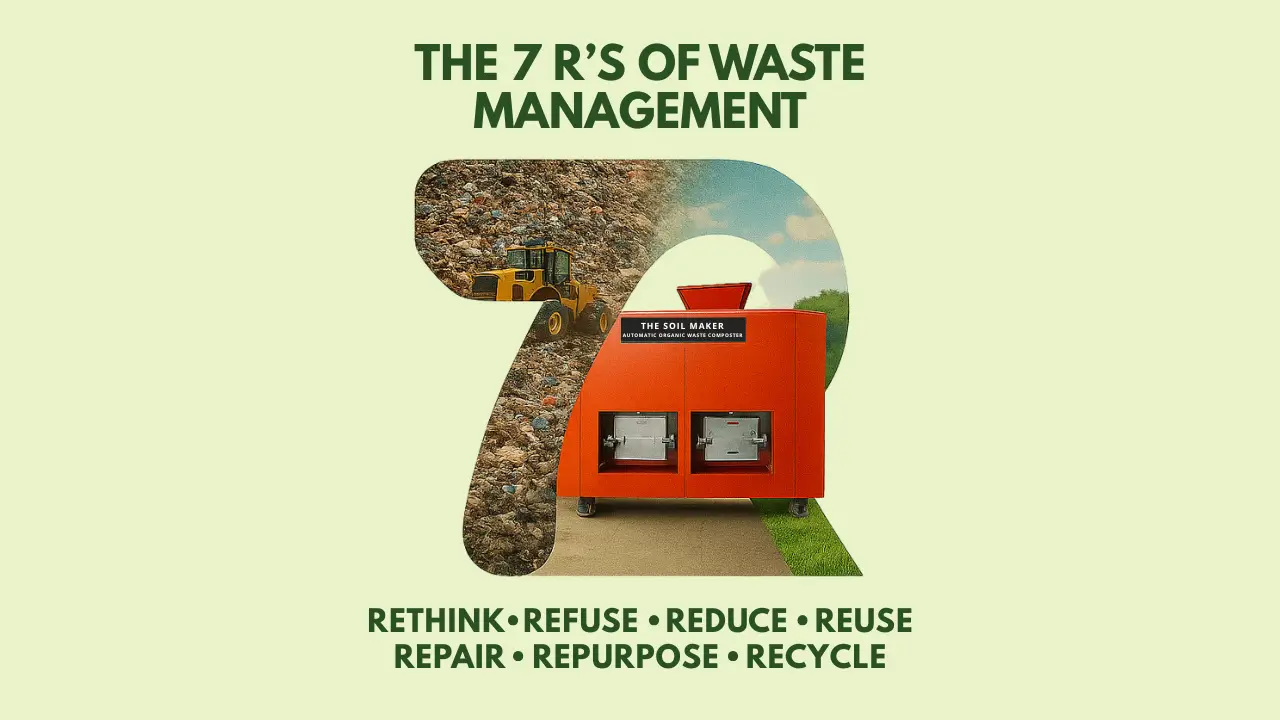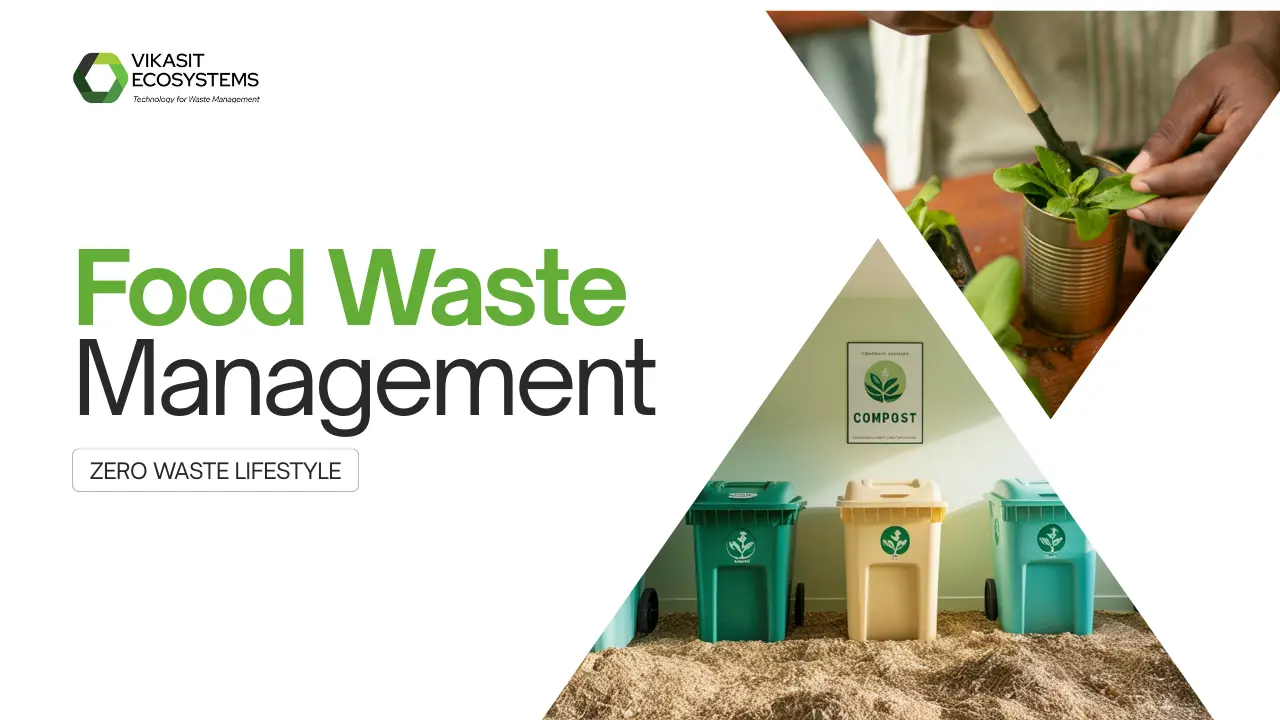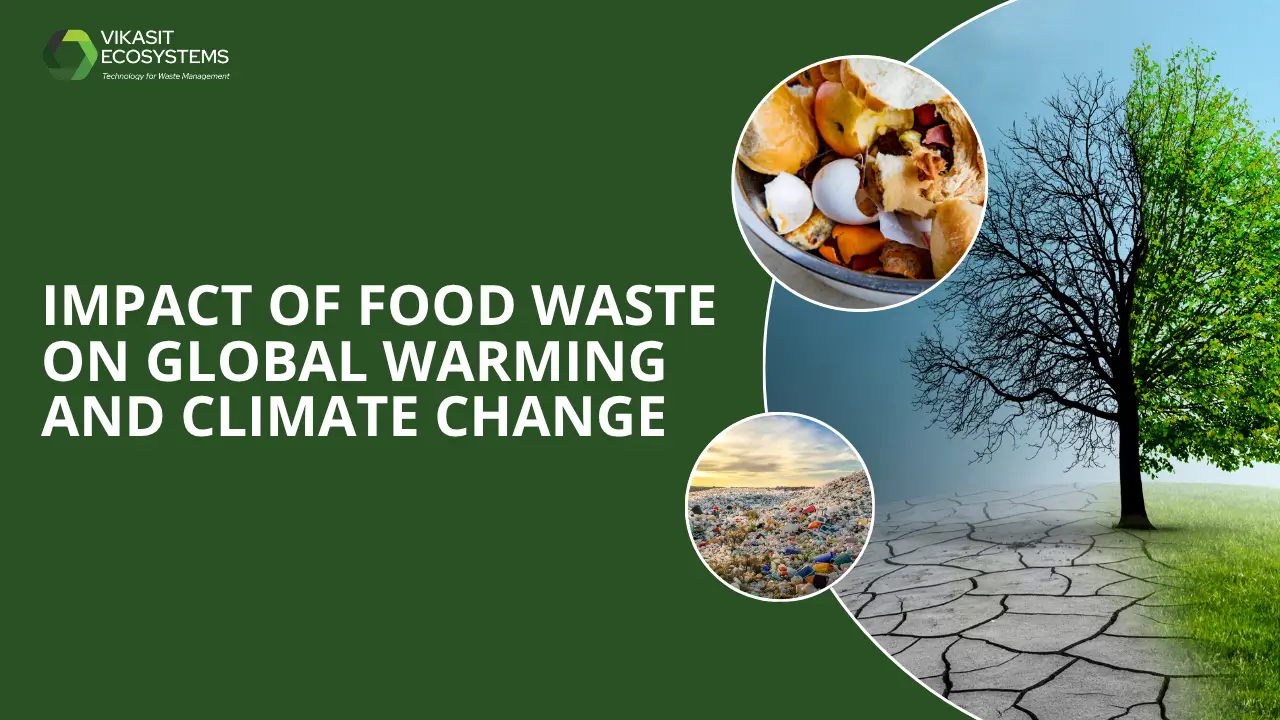Introduction
In an age defined by innovation and consumption, humanity stands at a pivotal crossroads. We have mastered production — but not preservation. The true challenge of our century lies not in scarcity, but in waste — the waste of resources, of time, and of human potential.
Sustainability is no longer a corporate checkbox or a campaign. It has evolved into the core philosophy of resilient leadership — one that aligns growth with responsibility. The 7R of Waste Management — Rethink, Refuse, Reduce, Reuse, Repair, Repurpose, and Recycle — present a holistic framework for visionary leaders who wish to build systems that regenerate rather than deplete.
At Vikasit, we see these principles not merely as environmental guidelines, but as a leadership manifesto for the 21st century — a path toward balance, purpose, and long-term planetary health.
The 7 R’s of Waste Management
Rethink: Leadership as Conscious Design
The first ‘R’ calls for a revolution of the mind. Rethinking is not about small efficiencies—it is about reimagining entire systems. It asks leaders to question the linear logic of consumption and to design for circularity from the outset.
To rethink is to see interconnections, to design with empathy for future generations, and to move from extraction to regeneration. Leaders who rethink build organizations that function in harmony with nature’s design.
Refuse: The Discipline of Integrity
Refusing what no longer serves the planet requires courage. It is the discipline to say no to excess, to short-term gains, and to unsustainable convenience. Visionary leaders understand that refusal is not a constraint—it is an act of clarity.
When organizations learn to refuse the unnecessary, they rediscover the essential — creating products, partnerships, and policies rooted in integrity.
Reduce: The Strategy of Efficiency
Reduction is not austerity; it is intelligent optimization. It compels leaders to refine processes, design leaner value chains, and cultivate products that endure.
To reduce is to prioritize quality over quantity, essence over excess. In doing so, organizations free themselves from the weight of waste and discover a new language of efficiency—one that aligns profit with purpose.
Reuse: Systems That Loop, Not Leak
In nature, there is no waste — only circulation. Reuse invites us to design systems that mimic this logic, where materials remain in motion, creating perpetual value.
Leaders who build for reuse lead enterprises that are not just sustainable, but self-sustaining — models of endurance that thrive in continuity.
Repair: The Renewal of Responsibility
Repair embodies the humility to mend rather than discard. It is leadership rooted in stewardship. Repairing what is broken—whether a product, a relationship, or a community—demonstrates accountability and foresight.
A culture that values repair nurtures resilience; it transforms fragility into strength and builds emotional and environmental intelligence into the organization.
Repurpose: Innovation Through Transformation
To repurpose is to awaken creativity. It challenges leaders to turn waste into opportunity—to see potential where others see obsolescence.
In every discarded material lies a story waiting to be rewritten. Repurposing is innovation at its most poetic: it mirrors nature’s wisdom, where decay becomes the seed of life.
For organizations, this mindset sparks new product lines, services, and business models that convert problems into potential.
Recycle: The Closing of the Circle
Recycling is the act of returning value to the cycle of creation. But visionary leadership understands it as the final step, not the first.
Recycling is most effective when supported by rethinking, refusal, and reduction. It is the culmination of a system designed to honor materials, not exploit them.
When done mindfully, recycling closes the loop — creating a regenerative cycle that respects both people and the planet.
The Leadership Lens
The 7 R’s are not merely environmental principles — they are principles of regenerative leadership. They encourage a cultural shift from consumption to consciousness, from extraction to regeneration.
The leaders of tomorrow will design economies that give back more than they take, understanding that sustainability is not a burden but the highest expression of intelligence.
In the century ahead, progress will not be measured by what we produce, but by what we preserve. The 7 R’s chart a transformative path — not just toward waste reduction, but toward a renaissance of responsibility, where humanity learns once again to live in elegant equilibrium with the Earth.
Conclusion
Waste management is more than a process — it is a philosophy of life and leadership. The 7 R’s serve as both a compass and a call to action, guiding individuals, businesses, and communities toward a circular economy that values renewal over replacement.
At Vikasit, we believe in leading by example — by embedding sustainability into every product, service, and solution we create. Together, we can transform waste into wisdom and build a future that thrives in harmony with nature.
FAQ
What are the 7 R’s of Waste Management?
The 7 R’s stand for Rethink, Refuse, Reduce, Reuse, Repair, Repurpose, and Recycle — a holistic framework that promotes sustainability through responsible consumption and circular design.
Why are the 7 R’s important for businesses?
They help organizations minimize waste, lower costs, enhance brand reputation, and build systems that are both sustainable and resilient in the long term.
How can individuals apply the 7 R’s in daily life?
Start small — say no to unnecessary packaging (Refuse), fix instead of replacing (Repair), and find creative ways to reuse or repurpose materials before recycling them.
What is the difference between “repurpose” and “recycle”?
Repurpose means giving a new function or use to an item (e.g., turning old jars into planters), while Recycle involves breaking down materials to make new products (e.g., melting plastic to form new bottles).
How does Vikasit incorporate the 7 R’s in its approach?
Vikasit integrates the 7 R’s philosophy into its waste management systems and products — focusing on circular design, community engagement, and sustainable innovation for long-term environmental impact.
What is the ultimate goal of the 7 R’s framework?
To move society from a linear “take-make-waste” model to a circular economy, where every resource is valued, reused, and regenerated — ensuring balance between progress and preservation.

Written by the Sustainability Research Team at Vikasit Ecosystems – pioneers in decentralized organic waste management and creators of The Soil Maker. Follow us for updates on green innovations, circular economy, and urban resilience.





